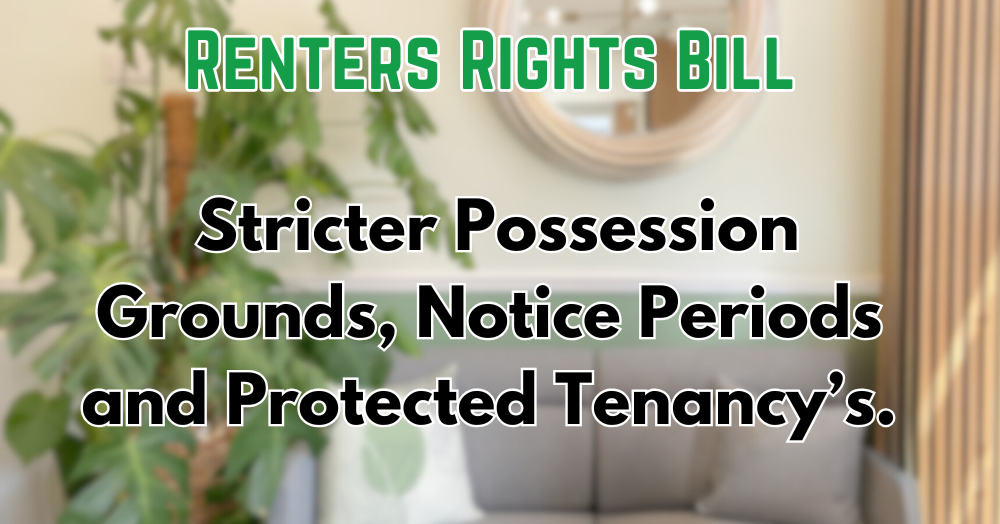
Renters Right Bill - Possession grounds, longer notice periods & protected tenancy's ⏳
With the abolition of Section 21, landlords will now need to rely solely on Section 8 grounds for possession. The bill clarifies and expands these grounds as well as changing notice periods. Here we look at the changes.
With the abolition of Section 21, landlords will now need to rely solely on Section 8 grounds for possession. The Bill modifies and expands the list of grounds on which a landlord can regain possession of their property, including new mandatory and discretionary grounds.
Landlords must go to court if a tenant does not leave and will need to provide evidence that the ground is met. For mandatory grounds, the court must award possession if the ground is proven. For discretionary grounds, the court can consider if eviction is reasonable, even when the ground is met.
If the tenant is at fault, notice using a relevant Section 8 ground can be served at any point during the tenancy. This includes where a tenant commits antisocial behaviour, is damaging the property, or falls into significant arrears.
New protections for tenants who fall into rent arrears will be introduced. The bill will increase the mandatory threshold for eviction from 2 to 3 months’ arrears and increase the notice period from 2 weeks to 4.
12-month protected period
As well as tenants, landlords’ own circumstances can sometimes change, and the bill includes strengthened rights to reclaim properties when it’s necessary, for example to sell or move in. Tenants will benefit from a 12-month protected period at the beginning of a tenancy, during which landlords cannot evict them to move in or sell the property. If the landlord or a close family member intends to move into the property, or if the landlord is selling, possession can be sought, but only after the tenant has been in the property for at least 12 months. The notice period for grounds 1 and 1A will be four months. It will be an offence to use specified grounds, including these falsely.
Anti-social behaviour and significant arrears
For more severe breaches of tenancy, such as anti-social behaviour or significant rent arrears (now defined as three months’ unpaid rent), landlords can seek possession anytime. This ensures that landlords can take swift action to remove problematic tenants.
Mandatory rent arrears grounds
Landlords can seek possession if a tenant accrues three months of arrears (an increase from the previous threshold of 2 months). The notice period has also been extended to 4 weeks. However, landlords can still rely on discretionary grounds (such as persistent late payments) for regaining possession when rent arrears do not reach the 3-month threshold, but the court will consider whether eviction is reasonable in such cases.